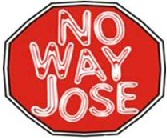In the present case (Civil Appeal No. 2138 of 2006, Supreme Court), the appellant had applied for registration of the mark “Ramayan” with the device of a crown in relation to incense sticks and perfumeries (class 3). This application was challenged by the respondent whose main contention was that since the mark was a name of a religious book, no single trader could claim exclusivity over it.
The Assistant Registrar of Trade Marks had held that this mark was capable of distinguishing the goods sold by the appellants and since it was not included in the list of marks which are deemed as not registerable (by order dated 31.02.2004), the respondent’s opposition was dismissed. However, the IPAB set aside this order and the appellant appealed to the Supreme Court.
The only question before the SC was whether the “registration of the word Ramayan as a trade mark, being the name of a Holy Book of Hindus, is prohibited under Section 9(2) of the Trade Marks Act, 1999”?
Answering this question the court emphatically held “The answer to the question as to whether any person can claim the name of a holy or religious book as a trademark for his goods or services marketed by him is clearly NO”. Also the court very specifically adds that if there was a prefix or a suffix to the word Ramayan which was of the same “length of the word Ramayan then Ramayan may lose its significance as a religious book and it make be considered for registration as a trademark”. This was one of the grounds on which the decision of the Assistant Registrar was dismissed.
Additionally, in this particular case, registration of the Ramayan mark was also denied on the ground that the mark itself has lost distinctiveness since evidence showed that there were 20 other traders who were using the word ‘Ramayan’ for similar goods.
Examining the blanket prohibition
The blanket prohibition against registration of holy or religious books as a trademark requires to be examined. It is not clear from where and relying on what judge comes to this conclusion. The decision seems to suggest that “using exclusive name of the book Ramayan, for getting it registered as a trademark for any commodity could not be permissible under the Act.”[…]”which is a clear indication that he is taking advantage of gods and goddesses, which is otherwise not permitted“. Surely, if the name of a religious or holy book is not permitted to be registered then by extension the names of all the gods and goddesses will also not be permitted. Hindusim itself is religion of many religious/holy books and many many more gods! There are probably over 30 crore Hindu gods itself and there are more than 100 Upanishads, around 40 Puranas, Vedas, post Vedic texts and i am the certain the list goes on and on and may never even end. Considering all the religions in India, it is dizzying to fathom the number of words absolutely barred from registration as a trademark by this judgement.
It was probably keeping the legions of gods, goddesses and holy books in India, that the Trade Marks Act prohibits only the registration of a mark if it “is likely to hurt religious susceptibilities”. Prior to the enactment of a trademark legislation in India, mill owners such the Bombay Mill Owners Association who maintained private registers for trademarks did not permit the registration of the names of gods and goddesses. However, this practice was not carried forward when India got its first trademark legislation in 1940. Though the first Indian legislation of 1940 was almost a reproduction of its UK counterpart, the ground for refusal of registration of a mark which is likely to hurt religious susceptibilities was custom made to suit local conditions (as suggest in the Ayyangar Committee Report). However, it is to be noted that even in 1940, the legislature did not prohibit the registration of the names of holy/religious books, names of gods etc. The restriction even in that day and age was limited to trademarks that hurt religious susceptibilities. This clause regarding refusal to register a trade mark on the grounds that it is “likely to hurt religious susceptibilities” has been a clause that has been included in every version of trademark legislation in India i.e. the 1958 Act and even in the 1999 Act, without introducing a blanket prohibition.
What amounts to hurting religious susceptibilities has not been defined in the Act. But like the standards of “morality”, probably this standard too is best tested based on contemporary sensibilities and not sensibilities relating to a bygone era. In this regard, an Allahabad High Court decision in Mangalore Ganesh Beedi case (2005) is of relevance. In this case, the respondent argued that the use of the trademark Ganesh on beedis hurt his religious susceptibilities for a variety of reasons : according to him smoking was a vice condemned by Hinduism and second, the packets containing these beedis were thrown in a dustbin after use and hence this hurt religious susceptibilities. The court firmly held that nothing was shown to suggest that smoking hurts religious susceptibilities and also observed “that whenever invitation cards of marriages or other ceremonies being performed by Hindu persons, photographs of God and goddesses are printed on these invitation cards and once the purpose of the cards is finished those cards also go to the dustbins, with them the photographs printed on them. Here also nobody’s feelings are hurt by saying that the photographs of God and goddesses are being thrown in dustbins along with other rubbish matters.” As against this progressive interpretation of our trademark act, the supreme court in this case seems to suggest that exclusivity over the name of a particular religious book can itself ‘hurts religious susceptibilities’ because other traders cant use the same. But this reasoning fails to realize that exclusivity can nonetheless be ‘usurped’, if not by registration, then by the common law rights of passing off.
